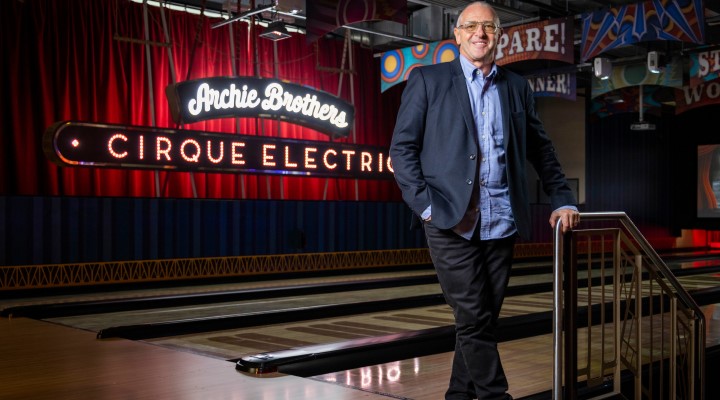Australasia’s largest fun company Funlab is planning to double its footprint nationally and internationally as it aims to capitalise on demand for experiences over products. The out-of-home (OOH) entertainment business, which currently operates 44 businesses across Australia, New Zealand and Singapore, is seeking over 40,000 square metres of additional real estate space to support its rapid growth. Michael Schrieber, CEO of Funlab, told Inside Retail that the company is currently explori
xploring the potential of Asian markets including South Korea, Japan, India, Indonesia and China.
“When we look around the globe, there isn’t really a company with the capability and house of brands that Funlab has. There is an opportunity and we are evaluating where is best [to target],” Schrieber said.
Funlab, which was recently acquired by global private equity firm TPG Capital, owns seven brands including Strike Bowling, Holey Moley (mini golf), Archie Brothers Cirque Electriq and B. Lucky & Sons (arcade experiences), as well as Juke’s Karaoke and Red Herring Escape Rooms. Each concept combines entertainment with bespoke food and beverage offerings to suit the experience.
Since 2016, the company has more than tripled revenue thanks to the popularity of Holey Moley and Archie Brothers with corporates, families and millennials.
Schrieber said the trend towards experiences over products, particularly among millennials and Gen Z, has been a major driver of growth for the business. Research by Harris Group found that 72 per cent of millennials would rather spend money on experiences over material things. And while this change was already underway pre-Covid, long periods of isolation have heightened the need for social experiences.
“What was exacerbated through Covid is that we are a gregarious species. We’re hardwired to socialise,” he said.
Furthermore, a trend towards “competitive socialising”, particularly among the 18-35 year-olds demographic, has fuelled interest in experiences such as axe throwing, escape rooms and mini golf.
Fun drives footfall
As a result, entertainment precincts are driving a broader range of people and are becoming a popular addition to shopping centres at a time when many traditional retailers are opting to reduce their physical store presence.
The recently-opened Ed.Square shopping centre near Edmondson Park in Sydney’s west, for example, includes an iPlay entertainment centre complete with arcade games, bowling lanes and a cocktail bar.
Schrieber believes entertainment concepts are pivotal in driving footfall at shopping centres at all hours of the day.
“As the shift to online retail continues to accelerate, shopping centres are getting handed back a fair amount of traditional bricks-and-mortar retail space,” he said.
“They need experiences to drive footfall. We are by nature a consume-on-site experience and we see an exciting opportunity to capitalise on this growth.”
Funlab is bringing this concept to reality at Forrest Chase and Karrinyup shopping centres in Perth. Strike Bowling and B.Lucky & Sons will co-locate under the same roof for the first time at Forrest Chase, while Karrinyup will house Archie Brothers Cirque Electriq, Strike Bowling and Holey Moley Golf Club in a combined offering.
“Co-locating established destination brands has an amplifying effect on visitations and spend. We see Funlab’s ability to deliver these precincts will provide solutions for large format spaces that are coming back to market and bring us a strong pipeline of opportunities.”
And with unique, Instagrammable designs being a key focus to appeal to younger generations, alongside tailored food offerings, these co-branded entertainment precincts are in a position to pull market share from traditional entertainment centres and food and beverage players.
Suburbs vs CBDs
While suburban locations have continued to remain strong for Funlab post-pandemic, the return of office workers to CBDs shows promise for the business.
“With corporates returning to work and this hybrid work [model] growing, it’s important to have these cultural touch points around team building and socialising because everyone’s dispersed. We think that is going to drive our CBD business,” he said.

